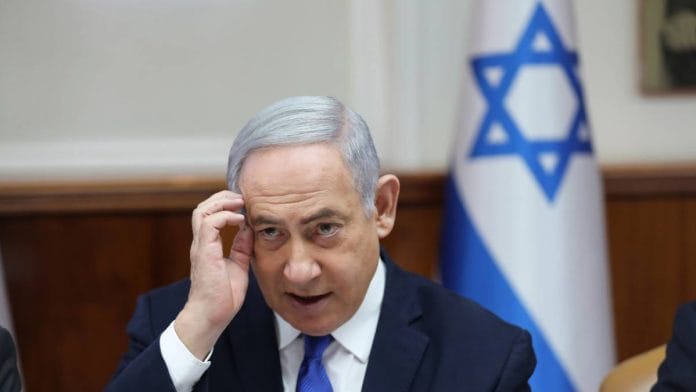Another inevitable yet inane war in the Middle East between Israel and Hezbollah begins this week. The Israel-Hamas war continues — a ceasefire seems impossible, hostages are doomed to endless captivity in tunnels, and thousands of Palestinians are destined to survive with the bare minimum in the demolished city of Gaza. Israel and Hezbollah have had a distinct violent past, and another war between the two won’t perplex many. Is this Israel’s moment of ‘war of no choice’ concerning Hezbollah? Can Israel afford another war while the one in Gaza is still inconclusive? What will be the war objective for Israel in Lebanon? Can such a situation lead to more regional fights?
Since 7 October 2024, when Hamas attacked Israel, Hezbollah has been attacking the north of Israel with countless rockets, missiles and drones, so much so that almost 1,00,000 Israelis from the northern towns and agricultural villages had to flee. They have been homeless in Israel for nearly a year now. Israel virtually lost its sovereignty as it could not protect people in the north from Hezbollah’s attacks, and with or without a ceasefire with Hamas, it finds itself in no position to avoid a direct fight with the Lebanese militia group. This is a good enough rationale in the language of international relations and law and a legitimate ground for Israel to strike Hezbollah. The latter refused other diplomatic efforts led by France and the United States. Hezbollah’s actions also defied the advisory of the United Nations Resolution 1701, which demanded a demilitarised zone between Israel and Lebanon, to which both agreed in 2006. Hezbollah is a fundamentalist group defying the norms and values of the modern world. However, Israel may not succeed militarily against it — just the way it hasn’t against Hamas in Gaza.
The brinkmanship that Hezbollah adopted for months against Israel meant to cause further chaos and fight in the region where the Israeli army would be stuck. That strategy is getting materialised now that Israel enters into a war in Lebanon – a place where it went last in 1982 and stayed with the military occupation for 18 years until 2000. That misadventure didn’t help Israel’s security either.
Also read: Iran knows a real war against Israel would be costly. It’s smarter to carry on anti-US tirade
No objective for war
Israel, under Prime Minister Benjamin Netanyahu, does not have a war objective in Gaza and neither would it have in Lebanon. There is a fog of war left in Gaza now from the Israeli army’s perspective. The army officially cannot declare the end of the war, as that’s a political decision only the political class of Israel can take. Still, in no uncertain terms, defence minister Yoav Gallant has said that the military has done its job in Gaza and now there must be a hostage-ceasefire deal. On the contrary, Netanyahu prefers to fight more because continuing the war helps him evade many domestic troubles such as his corruption trial or the inquiry commission for the security failure on 7 October.
For weeks, he has been trying to find an opportune moment to sack the defence minister for speaking against further wars. Gallant does not have a solution to the belligerence of Hezbollah, except a military force. Under tremendous pressure from the public in the north of Israel, he is unwillingly supporting Netanyahu’s decision to attack. Such is the wickedness of the brinkmanship of Hezbollah that another war is inevitable. Gallant must be worried about what comes after these strikes — another episode of occupation of southern Lebanon as Netanyahu is dismissive of any political conclusion of the war in Gaza or with Hezbollah.
Therefore, whether it is blasting pagers in a Hollywood-style spy thriller or carrying out surgical airstrikes over Beirut, the war against Hezbollah would not make Israelis secure or be able to return to their homes in the north of Israel. Gallant is a strong and popular leader among Israelis, with a whole army behind him. Yet, he is not in a political position to rebel against a Machiavellian leader like Netanyahu.
A war of our times
Israel does enjoy greater diplomatic support from the European nations, the US, and Arab states like Jordan, Egypt, and the Gulf monarchies that are against Hezbollah and its patron, Iran. That can give it some good weeks to fight in southern Lebanon. The Israeli army has shown much greater intelligence and strategic know-how against Hezbollah in the last week, and that may discourage Iran from directly involving itself with Israel. The US opposes any ground military operation in southern Lebanon so Israel will have to mind its business after airstrikes.
Though, substantially speaking, the Israel-Gaza war has engulfed the region in more than one way. There is widespread fear of war in the region; many state and non-state actors are openly fighting and the international players are acting from their partisan views or vested interests. The Israel-Hezbollah war may go on for another year. Such a war is a complex situation of our times. It challenges us to grapple with nuances of human history since there is an amalgam of human folly, an unresolved historical conflict like Israel-Palestine, and ideological-religious fantasies here.
Dr Khinvraj Jangid, Professor and Director, Centre for Israel Studies, OP Jindal Global University, Sonipat. Visiting Faculty, The Ben-Gurion University, Israel. Views are personal.
(Edited by Humra Laeeq)






